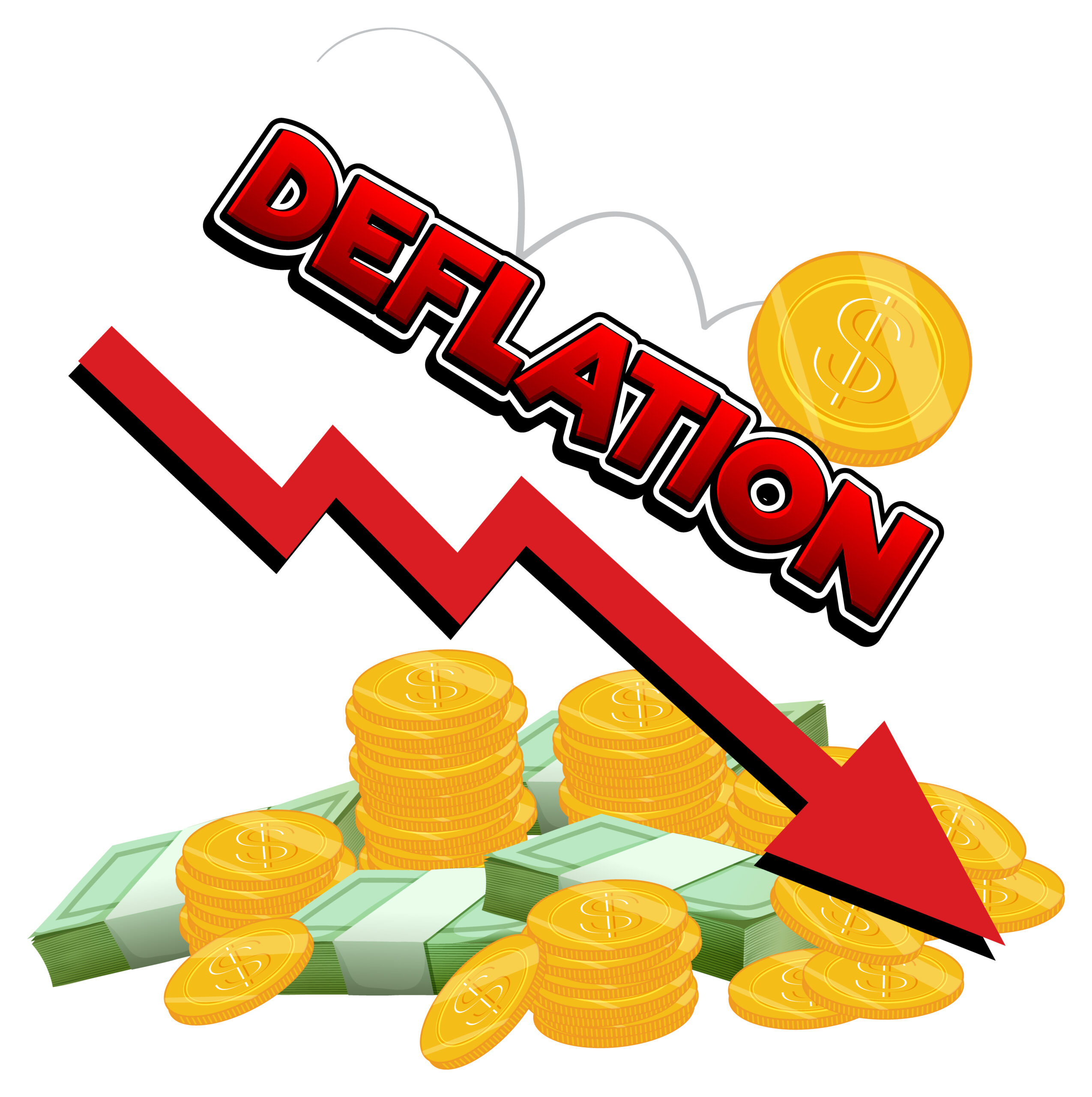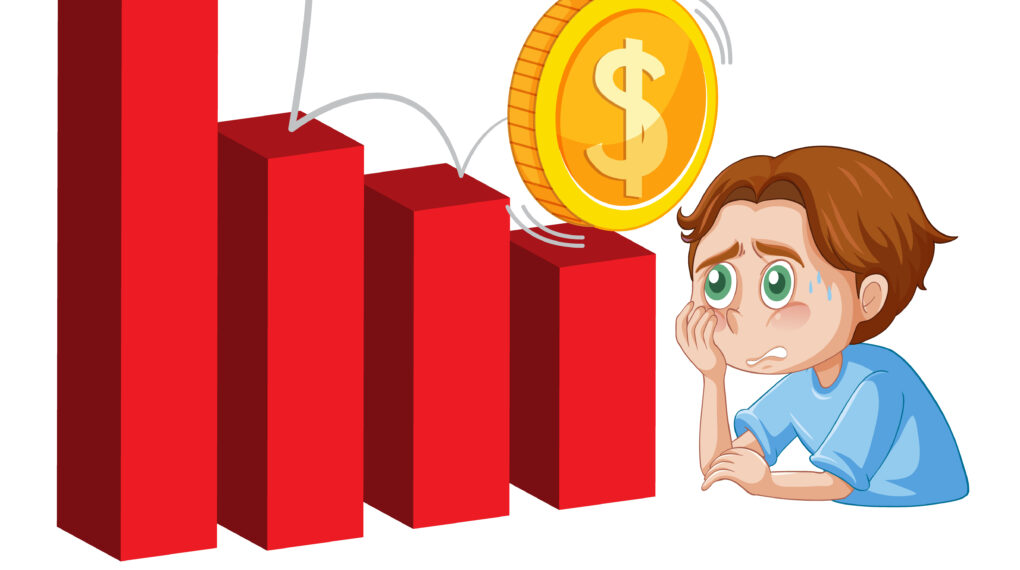Deflation is a decrease in the general price level of goods and services. Put another way, deflation is negative inflation. When it occurs, the value of currency grows over time. Thus, more goods and services can be purchased for the same amount of money.
Deflation is widely regarded as an economic “problem” that can intensify a recession or lead to a deflationary spiral.
Causes of Deflation

The fall in demand triggers a decline in the prices of goods and services. The impact also results in to increase in supply. Below are the factors leading to deflation:
- Fall in the money supply – A central bank may use a tighter monetary policy by increasing interest rates. Thus, people, instead of spending their money immediately, prefer to save more of it. In addition, increasing interest rates lead to higher borrowing costs, which also discourages spending in the economy.
- Decline in confidence – Negative events in the economy, such as recession, may also cause a fall in aggregate demand. For example, during a recession, people can become more pessimistic about the future of the economy. Subsequently, they prefer to increase their savings and reduce current spending.
- Lower production costs – A decline in price for key production inputs (e.g., oil) will lower production costs. Producers will be able to increase production output, which will lead to an oversupply in the economy. If demand remains unchanged, producers will need to lower their prices on goods to keep people buying them.
- An increase in supply – if there’s an increase in the total supply of goods and services available from product producers, this can also cause deflation. It could mean producers have to face more competition from other suppliers.
Is deflation good or bad for the economy?
A small amount of deflation might not seem like such a bad thing. For consumers, if the price of goods and services goes down, it increases the purchasing power of money.
But in the long run, the effects on the economy are negative too. Here are some of the negative effects.
- Increase in unemployment: During deflation, the unemployment rate will rise. Since price levels are decreasing, producers tend to cut their costs by laying off their employees.
- Increase in the real value of debt: Deflation is associated with an increase in interest rates, which will cause an increase in the real value of debt. As a result, consumers are likely to defer their spending.
- Deflation spiral: This is a situation where decreasing price levels trigger a chain reaction that leads to lower production, lower wages, reduced demand, and even lower price levels. During a recession, the deflation spiral is a significant economic challenge because it worsens the financial situation.
Deflation impact in Indonesia
The Central Statistics Agency (BPS) reported that Indonesia experienced deflation in July 2024, with the Consumer Price Index (CPI) dropping from June 2024 and July 2024.
A BPS head has explained that the volatile food component saw a deflation of 1.92% month-on-month. She detailed that the largest contributor to monthly deflation was the food, beverage, and tobacco group, which experienced a deflation of 0.97%, contributing to an overall deflation of 0.28%.
Care must be taken when interpreting weakened purchasing power, as deflation alone is not the sole indicator of reduced consumer spending.



